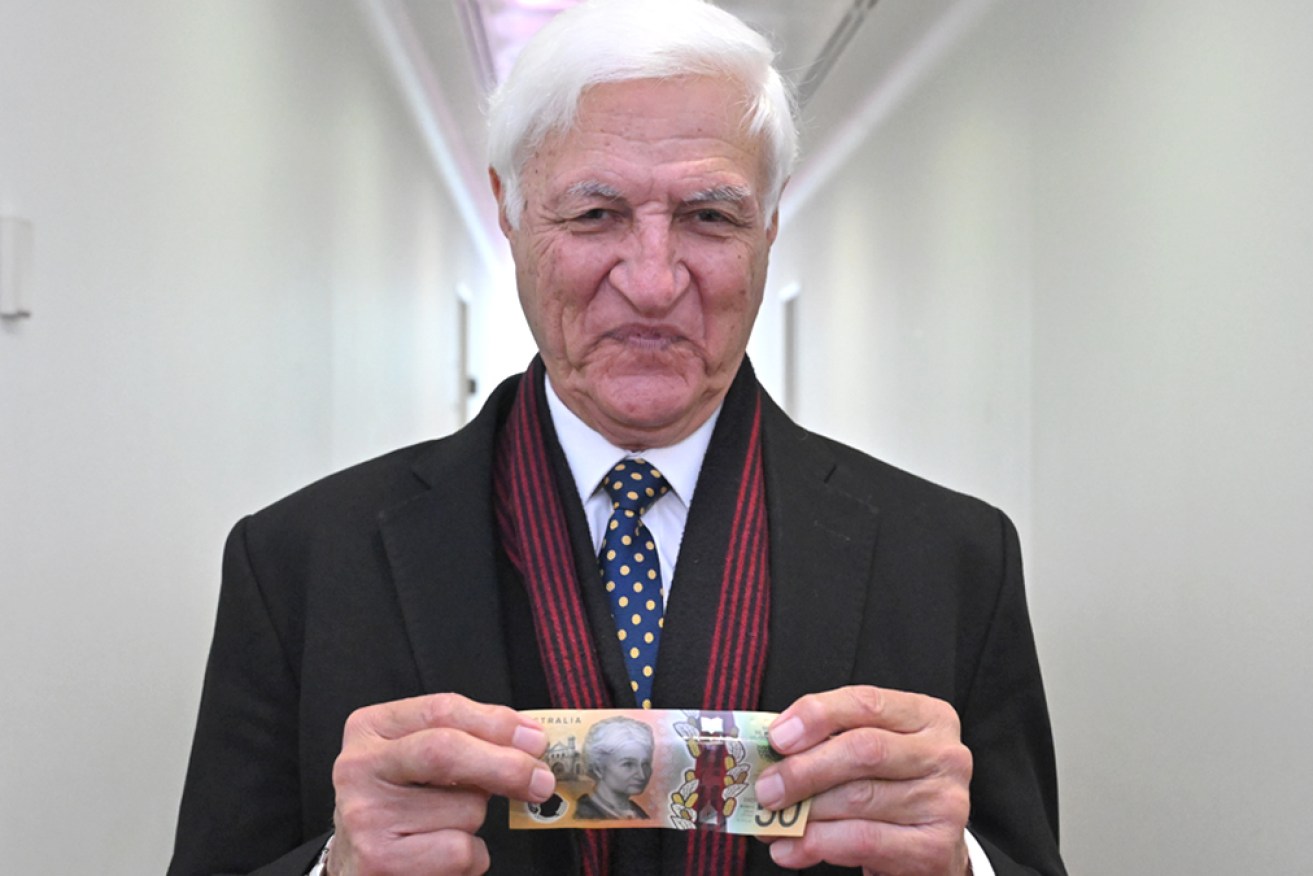Extract from The New Daily


Bob Katter has fired up at a parliamentary cafe's cash-free policy. Photo: AAP
Firebrand Queensland MP Bob Katter has clashed with staff at the parliamentary cafe in an extremely on-brand – and bizarre – row.
Katter fired up after his crisp $50 note was rejected in payment for an order of fish, rice and vegetables on Tuesday.
“[The cashier] said, ‘we don’t accept cash’ and I said ‘well too bad for you, you have to, it’s legal tender and it’s illegal for you not to take cash’,” the 78-year-old independent MP told Sky News Australia on Wednesday.
“We’ve had a lot of anti-cashless rallies in north Queensland … it’s quite right we start the fight against cashless society; if you have a cashless society, the banks control your life.
“You can’t buy a loaf of bread without permission from the banks.”
Staff offered to give Katter his fish for free but he remained hungry for justice.
“I said ‘no, no no, I will stand here, and you will accept this legal tender and if you don’t you’ve broken the law’,” he said.
“The manager came down … and he said ‘yeah it is the law, we do have to accept cash’.”
An unimpressed Katter said cash was crucial when the power went out during natural disasters – as has happened across Queensland repeatedly this summer.
“Your plastic magic won’t work without electricity – and without cash you’ll starve. You won’t be able to buy fuel or medication either,” he said.
“You don’t realise until you’re caught.”
House Speaker Milton Dick has since jumped in to the cafe spat. After Katter took the issue up with him, Dick has reportedly vowed to “immediately” have the Canberra cafe’s cash-only policy reversed.
Katter said the cafe incident was “embarrassing”, considering his cash was rejected in the very place where laws were made to have it protected as a valid form of currency.
The north Queensland MP’s fight comes as cashless transactions become increasingly popular in Australia. There were warnings last year that rural and remote communities were left particularly vulnerable in the transition.
Swinburne University adjunct professor Steve Worthington told TND that the roughly 7 per cent of Australians who used cash for the bulk of their transactions in 2022 risked being left behind unless governments took action.
“There are significant minorities in that 7 per cent,” he said.
“Senior citizens who are not digitally native, then there’s also people in rural and regional areas.
“Then we have well over two million people with either no or little access to the internet – how they’re supposed to shift away from using cash is beyond me.”
Remote and regional areas are particularly vulnerable because internet access is less widespread and there are significant distances between dwindling bank branches.
-with AAP
No comments:
Post a Comment